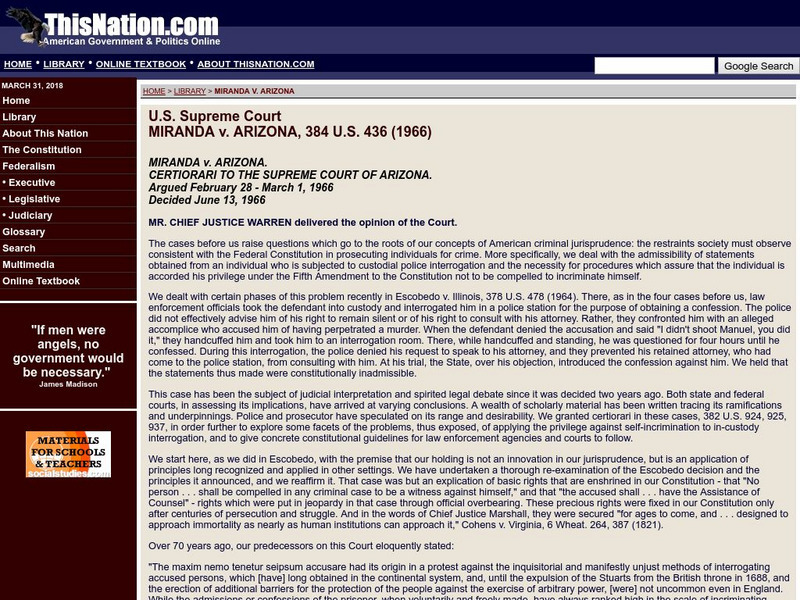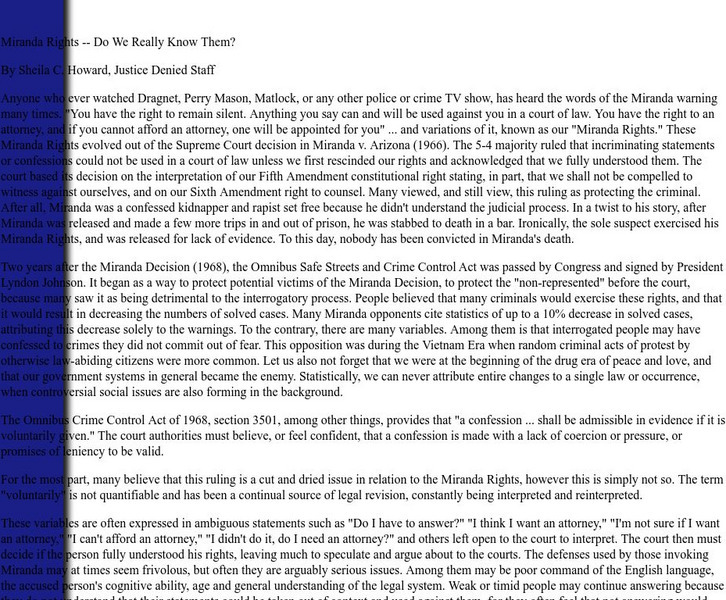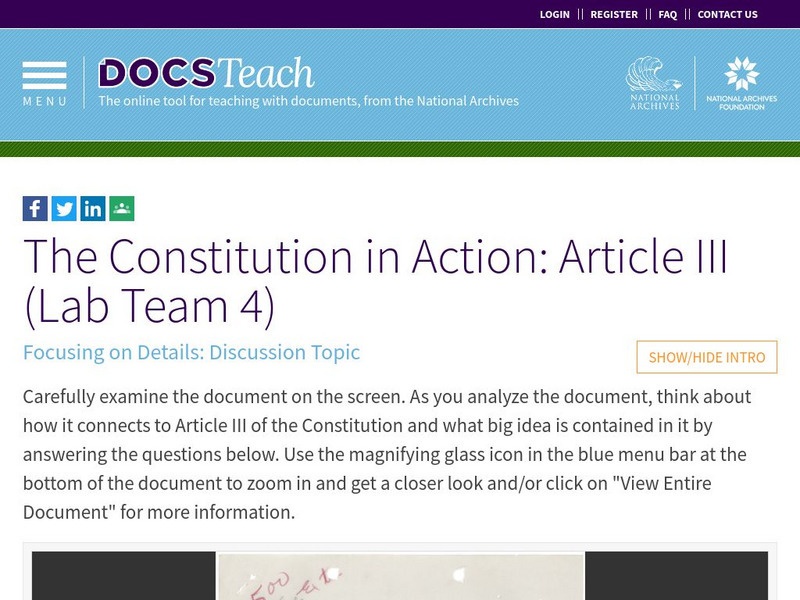Teaching Tolerance
Dismantling Racial Caste
It's time to end racism. The final installment of the series encourages scholars to consider what is needed to ended the racial caste system in the U.S. Young historians complete group discussion, written prompt, and a hands-on-activity...
Teaching Tolerance
Parallels Between Mass Incarceration and Jim Crow
Is history repeating itself? A riveting lesson examines the parallels between mass incarceration in the U.S. and the Jim Crow Laws of the past. Academics review Jim Crow Laws and compare them to mass incarcerations of African Americans....
Teaching Tolerance
Understanding the Prison Label
Break the chain. An engaging lesson examines why it is so hard to break free of the prison system in the US. Academics participate in a reader's theater, read primary sources, and discuss their thoughts. The lesson explains the hardships...
Teaching Tolerance
Racial Disparity in the Criminal Justice System
Explore the impact of the war on drugs in a thought-provoking instructional activity for high school academics. Young historians delve into the world of the criminal justice system and the racial disparity that occurs in the US. The...
New York State Education Department
US History and Government Examination: January 2012
What led to the United States Civil War? Interested historians consider a variety of political, social, and economic factors using primary sources and an essay prompt in an authentic high-stakes test. Primary sources include political...
State Bar of Texas
Miranda v. Arizona
You have the right to remain silent—but why? Scholars analyze the nature of what has become known as the Miranda Rights. A short video along with paired group work and discussion opens the issue of the rights of the accused upon arrest....
PBS
Understanding and Applying the Miranda Decision
How does the Supreme Court Miranda decision affect court cases? Scholars watch a video about the decision, discuss its application in various cases, fill out multiple handouts, and work in groups to better understand how much weight the...
Curated OER
Miranda v. Arizona (1966)
Students examine Miranda v. Arizona. In this court decisions lesson, students analyze the self incrimination case and read other supplemental articles about police procedures and due process. Students discuss the Supreme Court decision...
Curated OER
The Bill of Rights
Students explore the Bill of Rights. In this philanthropy and citizenship lesson, students identify and explain how each of the first ten amendments protects the rights of citizens. Students select one amendment to illustrate, and write...
Curated OER
Criminal Law -- Miranda
Students examine the law and the Miranda rights. They role play members of law enforcement and ones being arrested.
Curated OER
The Right to Know Your Rights
Young scholars read a New York Times article in order analyze the Miranda Rights. They explore various legal views of these rights through group interviews and presentations.
Curated OER
The Bill of Rights
Ninth graders examine various Supreme Court Cases. In this American Government lesson, 9th graders research a specific Supreme Court Case. Students create a multiple choice assignment based on their assigned case.
This Nation
This nation.com: Miranda v. Arizona (1966)
The full text of Chief Justice Earl Warren's decision in this landmark Supreme Court case.
Other
Miranda Rights: Do We Really Know Them?
This article points out the importance of the Miranda rights for any suspect brought in for questioning. The author feels the right, which derives from the Fifth Amendment, must not be revoked.
Other
Find Law: Cases and Codes: Miranda v. Arizona (1966)
This resource provides information about the Supreme Court decision in the Miranda v. Arizona case.
Other
Landmark Cases: Miranda v. Arizona (1966)
Lesson plans, activities, and information all about this key Supreme Court decision that protected the rights of the accused. These became known as the "Miranda Warnings." Included is a background summary, excerpts and the complete text...
Other
Miranda Warnings: When Are They Really Necessary?
This site discusses the different situations in which the Miranda Warnings are necessary.
Annenberg Foundation
Annenberg Classroom: Legal Rights
This website contains an interactive timeline about the history of legal rights in the United States.
US National Archives
Docsteach: The Constitution in Action: Article Iii (Lab Team 4)
In this activity students will analyze the Opinion of the Court by Chief Justice Earl Warren in the Case of Miranda v. Arizona and identify how the document demonstrates content contained within Article III of the Constitution in action.
PBS
Wnet: Thirteen: The Supreme Court: Landmark Cases: Miranda v. Arizona (1966)
PBS presents a summary of the landmark Supreme Court case of Miranda v. Arizona which ruled that a person suspected of a crime must be informed of their constitutional rights before police questioning, becoming known as the "Miranda...
Other
Us Supreme Court to Reconsider the Right to Remain Silent!
This article sums up the anticipated views of Supreme Court members on the occasion of the arguments to reverse the Miranda decision.
CommonLit
Common Lit: "You Have the Right to Remain Silent": History of Miranda Rights
Can your rights protect you if you don't even know what they are? Supreme Court case Miranda v. Arizona answered that question by requiring police officers to read the "Miranda Rights" when making an arrest. This text will explain the...
CommonLit
Common Lit: Text Sets: Modern Democracy in America
This is a collection of 19 Grade-Leveled texts (6-12) on the topic Modern Democracy in America. How does democracy function in modern-day America? Learn how a bill becomes a law, the role of American presidents, and much more in this...
Siteseen
Siteseen: Government and Constitution: 5th Amendment
Short, simple summary with the full text of the 5th amendment of the Bill of Rights detailing the need for 'due process of the law' before punishing a person and the right to a trial by jury as detailed in the Constitution.





















